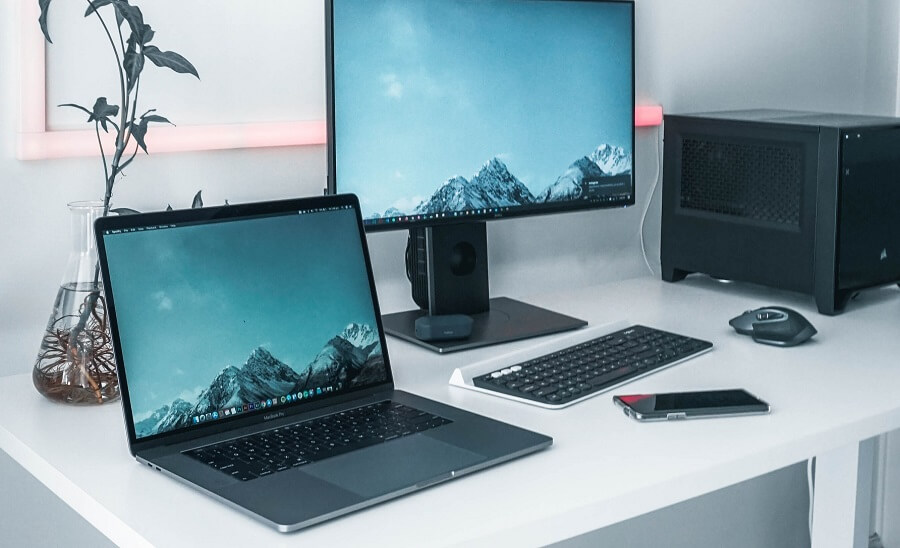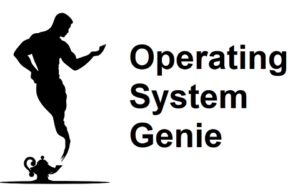A virtual machine uses the same resources as a standard computer. But, in this article I will explain if you need a GPU for virtual machines, and if the GPU you have impacts a VM.
It’s not necessary to have a GPU for virtual machines according to the minimum system requirements of the most well known virtualization programs, VirtualBox and VMWare Workstation.
A GPU is hardly utilized for the vast majority of cases when a VM is used. Such as, for business operations. Due to the reduced speed that a VM runs at, it’s not practical to use it for anything that has a high demand on the GPU, such as gaming, or video rendering.
Below, I will explain:
- If a VM uses the GPU or CPU
- Can you use the GPU on a virtual machine
- Does a GPU help with virtualization
Let’s dive in!
Does a VM Use GPU or CPU

A VM uses the CPU but hardly any of the GPU. The only task a GPU is given when running a virtual machine is rendering the display. It is not used for processing resource intensive tasks, such as gaming.
The reason is a VM runs much slower than a normal computer. This is because a portion of a computer’s resources are allocated to the VM. A computer’s resources are shared between your computer and the VM.
A VM can use the GPU but it’s not recommended unless you have a very high end system. It’s far better to run something GPU intensive on your computer. The same is true of programs that are CPU intensive.
The truth is:
The faster your computer is, the faster a VM will run.
Two of the most popular free virtualization programs are Oracle’s VirtualBox and VMWare Workstation. According to the official Oracle website they do not give a minimum GPU requirement. They only state:
“1 GHz or faster 64-bit processor (2GHz recommended) and 2GB RAM minimum (4GB RAM recommended)”.
(source: VirtualBox.org )
)
VMWare Workstation also does not state a minimum GPU. They state the following minimum system requirements:
- Computer that is newer than 2011
- 1.3GHZ CPU (processor) speed
- 2GB RAM minimum, 4GB recommended
In my experience 8GB is the minimum so that a VM runs fairly well. Any less than that and it will be too slow to use comfortably.
Another consideration is the internet usage on a virtual machine.
READ MORE >> How a virtual machine uses the internet
CPU usage on Cloud Virtual Machines such as Microsoft Azure
As you may know, there are now cloud virtual machines that are widely used. Essentially Microsoft rents a computer for a fraction of the cost.
So, when a computer is no longer needed a business or person can simply end their subscription. Without needing to sell all of their computer hardware.
It also allows them to manage their computers completely remotely. Giving greater flexibility. A cloud virtual machine also uses CPU and GPU resources. But, only to connect to the cloud virtual machine.
Almost always, this is done using Windows Remote Desktop. Which is a small program built into windows. It has a small demand for the CPU and GPU.
Provided, you have 8GB of RAM or more on your personal computer, accessing and using cloud virtual machines will be fast enough.
The limiting factor is how much CPU and RAM you allocate to it. Which is done, in the settings when you create the virtual machine. But, you can increase it later. Allocate a minimum of 4GB of RAM, and the largest reasonable CPU allowance. On Microsoft Azure, this is 2 CPU cores.
Microsoft does provide extremely high performance graphics cards on their virtual machines. They state that these should be used for VMs running:
“…specialized, high-performance compute or machine learning tools, such as those built with NVIDIA CUDA”.
Can You Use the GPU on a Virtual Machine
You can use the GPU on a virtual machine. A virtual machine created on your personal computer will get allocated a percentage of the GPU on your personal computer. A cloud virtual machine, such as on, Microsoft Azure gets assigned a percentage of the GPU on the computer provided by Microsoft.
Both work in the same way. Except, a cloud virtual machine does not utilize any of the GPU on your personal computer. Technically it does.
But, only a tiny percentage is required to run the program to access the remote virtual machine. On Windows computers, this program is almost always Windows Remote Desktop.
Microsoft also provides extremely fast GPUs on their virtual machines which can be set in the settings. However, these come at a higher price, and therefore, only make sense for work related GPU usage. Such as machine learning.
For gaming, it’s almost always better to run the game from your personal computer without a virtual machine. If you do game on a cloud virtual machine, you can utilize a far better GPU. The limiting factor will be the amount of RAM you have and the speed of your CPU.
But, provided you have a decent CPU, the integrated graphics card that comes with it will be more than enough to play the latest games, on even the highest graphics settings. I personally, recently purchased a low end laptop. It has a 10th gen i3, with a built in integrated GPU.
I can easily play the latest games with an average of 60 FPS. Which is good for most people. If I wanted to increase it, I would get a dedicated GPU.
Does a GPU Help With Virtualization
A GPU does not help much with virtualization. Creating and running a virtual machine uses virtually none of a GPUs resources. You can see how much of your GPU is being utilized in the Windows Task Manager.
A faster GPU will not help with virtualization, and the slowest GPU – a built-in integrated graphics card – provides more than enough GPU to create and run virtual machines.
Most tasks done on a virtual machine are not GPU intensive. The reason is, it’s better to do GPU intensive tasks using a computer without a virtual machine. It runs much faster.
The only exception is a large company that is using cloud virtual machines to process large amounts of data using a GPU. Where it makes more sense to ‘rent’ computers for this task rather than buy all of the hardware required.
